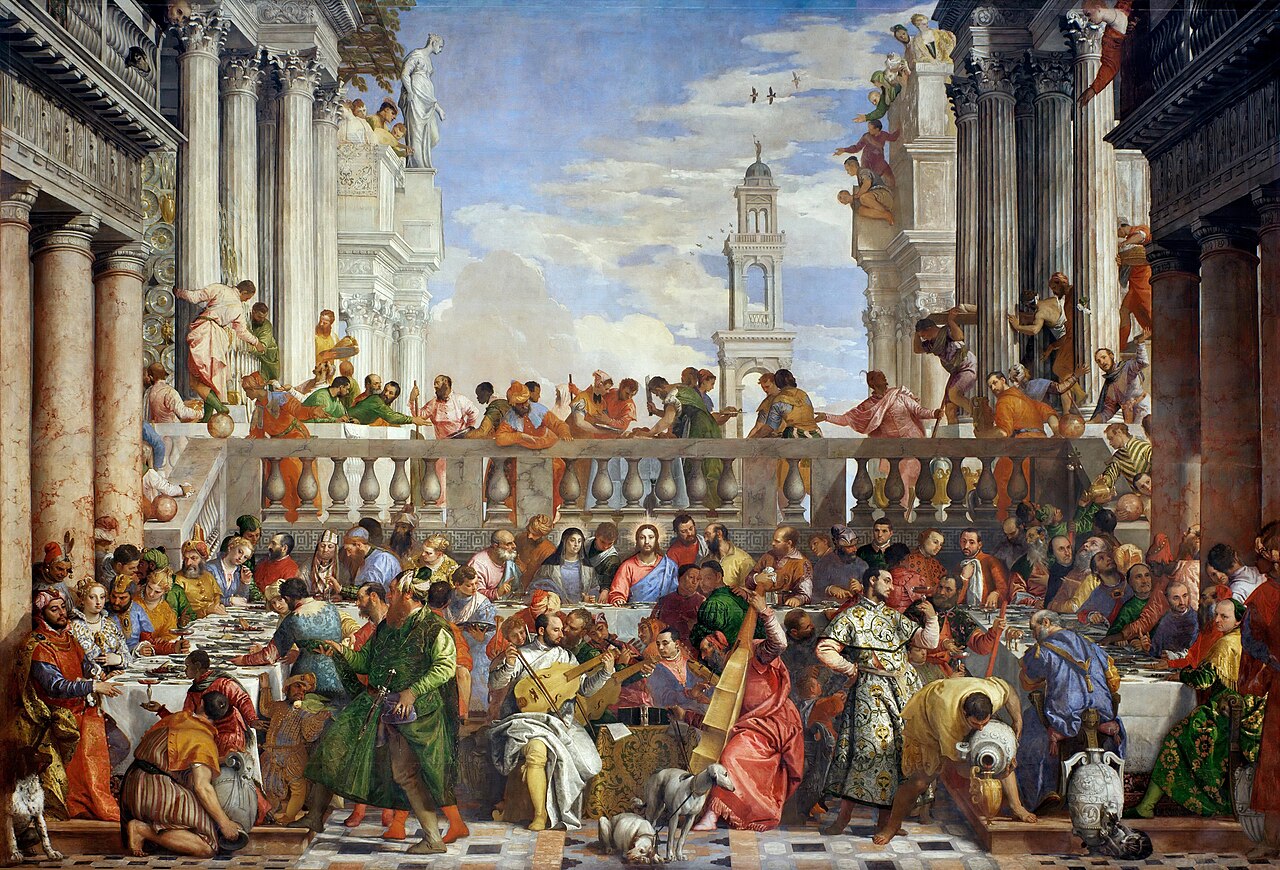The life and teachings of Jesus Christ, chronicled in the New Testament of the Bible, are rich with accounts of miraculous deeds that attest to his divine nature and authority. These miracles serve as powerful demonstrations of Jesus' compassion, mastery over nature, and ability to bring about profound transformations in the lives of individuals. In this exploration, we delve into ten notable miracles attributed to Jesus in the New Testament, each revealing unique facets of his character and mission. From turning water into wine to calming stormy seas, these miracles offer glimpses into the extraordinary power and love of the Son of God. Join us on this 10-week journey as we uncover the significance and impact of these miraculous events in the ministry of Jesus Christ.
1. The Wedding at Cana: A Revelation of Divine Grace
 The Wedding Feast at Cana Nozze di Cana 1562-1563 by Paolo VeroneseThe account of the wedding at Cana, as recorded in the Gospel of John, offers a captivating narrative rich with symbolism and spiritual significance. Set in the picturesque town of Cana in Galilee, this story unfolds as a testament to Jesus' compassion, power, and the abundance of divine grace. Let's explore the profound layers of this transformative event.
The Wedding Feast at Cana Nozze di Cana 1562-1563 by Paolo VeroneseThe account of the wedding at Cana, as recorded in the Gospel of John, offers a captivating narrative rich with symbolism and spiritual significance. Set in the picturesque town of Cana in Galilee, this story unfolds as a testament to Jesus' compassion, power, and the abundance of divine grace. Let's explore the profound layers of this transformative event.
The scene opens on the third day of a wedding celebration, a joyous occasion marked by feasting and fellowship. Jesus, accompanied by his disciples, graces the festivities with his presence, underscoring the sanctity of marriage and the importance of communal celebration.
However, the joyous atmosphere is soon clouded by a pressing concern – the wine supply has run short. In a moment of maternal concern, Mary, the mother of Jesus, approaches her son with a simple yet poignant observation: "They have no wine." Her words carry a deeper significance, signaling a recognition of Jesus' divine capacity to address human need and transform the ordinary into the extraordinary.
Jesus' initial response appears enigmatic, as he cryptically remarks, "Woman, how does your concern affect me? My hour has not yet come." This seemingly curt exchange between mother and son unveils a deeper truth – that Jesus' ministry is governed by divine timing and purpose, and that the unfolding of miracles is intricately woven into the divine plan.
Undeterred by Jesus' response, Mary offers a timeless directive to the servers: "Do whatever he tells you." Her unwavering faith and submission to Jesus' authority set the stage for the miraculous events that are about to unfold.
Amidst the wedding festivities, Jesus performs a remarkable act of transformation, instructing the servants to fill six stone water jars used for Jewish ceremonial washings with water. In a breathtaking display of divine power, the water is miraculously turned into wine of the highest quality.
The headwaiter, unaware of the miraculous origin of the wine, is astonished by its exceptional quality, proclaiming to the bridegroom, "You have kept the good wine until now." This act of transformation serves as the inaugural sign of Jesus' ministry in Cana, revealing his glory and eliciting belief and faith in his disciples.
The wedding at Cana stands as a timeless testament to the boundless grace and compassion of Jesus Christ. In transforming water into wine, Jesus not only addresses a practical need but also symbolizes the abundance of divine provision and the joy of salvation found in him.